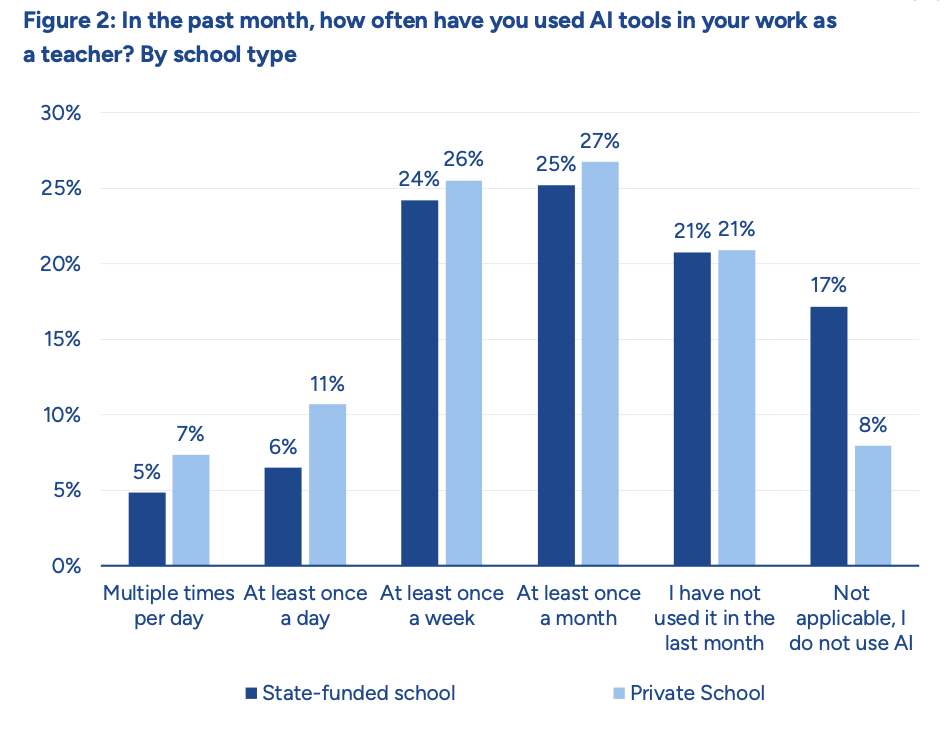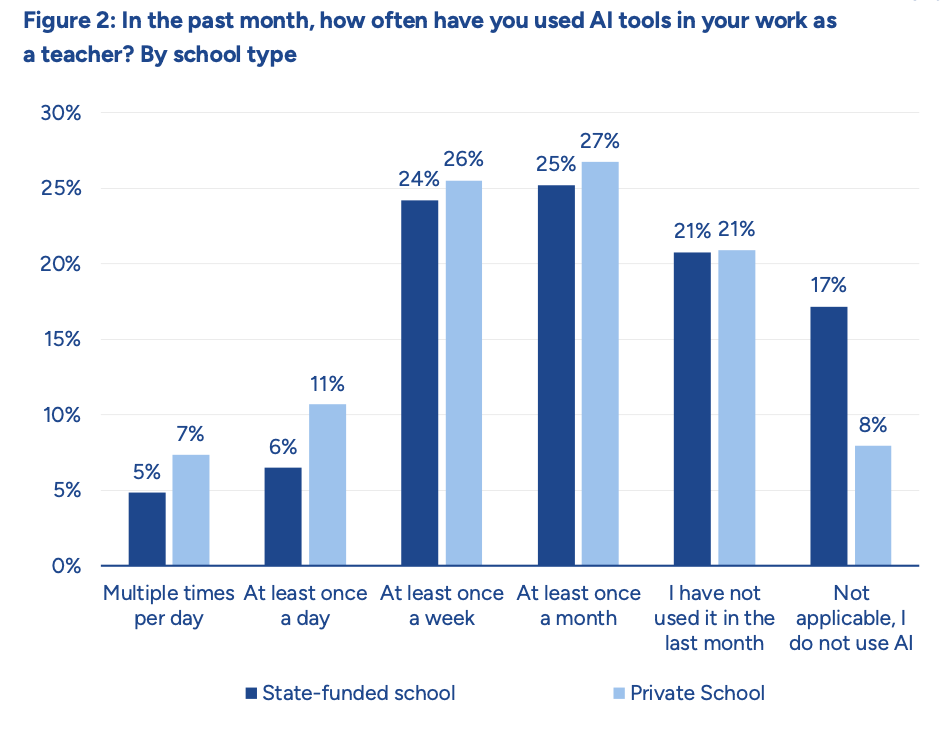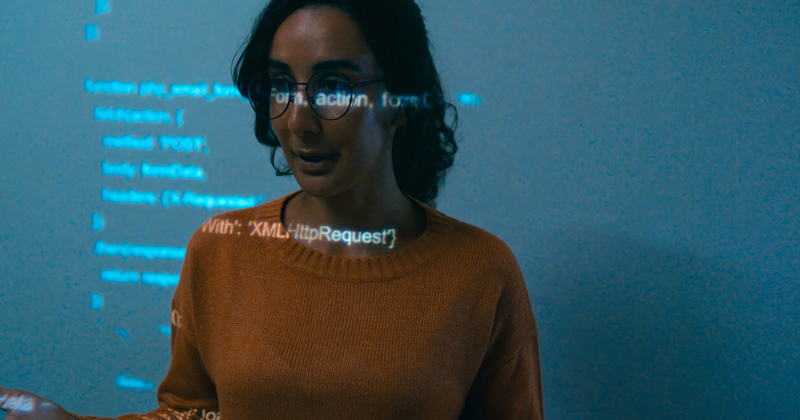Private schools are three times more likely than state settings to have a clear school-wide strategy on using AI, new research reveals.
A report from the Sutton Trust has warned private schools and the most affluent state schools are “forging ahead” in a “digital wild west”.

CEO of the charity Nick Harrison (pictured right) said if action is not taken to close the widening gap, “access to AI risks becoming the next major barrier to opportunity for disadvantaged young people”.
But despite using AI more, private school teachers were more likely to have concerns about using the technology.
Growth in use of AI – but uneven spread
A poll of 10,000 teachers by Teacher Tapp found 62 per cent of respondents reported they used AI in the last month.
The number of teachers who said they had never used it has more than halved in a year, from 41 per cent to 16 per cent.

Private schools, state schools in affluent areas and schools rated ‘Outstanding’ by Ofsted were most likely to report a school-wide strategy on the use of AI, according to the research.
Participants in both private and state settings reported using AI the most for lesson planning and preparation.
But private school teachers were more likely to use AI for writing pupil reports, creating assessments, communicating with parents and marking.
The study also found 27 per cent of teachers in private settings said they had a “clear school-wide” AI strategy, compared to just 9 per cent in state schools. Teachers in private schools were also more likely to have had formal AI training (45 per cent compared to 21 per cent).
But more than nine out of ten teachers said they had concerns about using AI – with more private school teachers reporting this than state.

Some variations were found across regions, with teachers in London schools using AI the most. English teachers were also found to be using AI far more than maths teachers, at 70 per cent and 40 per cent.
Teachers ‘not confident’ in using AI
The Sutton Trust has called for every school to have a senior leadership member of staff with responsibility for AI.
Researchers said “many teachers and senior leaders are not confident using AI tools”, because existing government guidance “is limited, relying too heavily on judgement calls by school staff, with the potential for significant variation between settings”.
While the vast majority of teachers said they had some concerns about the use of AI, private school teachers reported slightly more. There were the largest differences in concerns over pupils cheating and accuracy or reliability of information.

Toolkits released by the government in June said it is essential that schools draw up an AI “vision”, using the technology for marking feedback, email writing and adapt materials for SEND pupils.
But schools were also told to plan for AI’s “wider use” in budget planning and tenders and to ensure safeguarding and privacy risks are monitored.
A DfE spokesperson said the government “are supporting teachers by publishing AI guidance and support materials to help schools and colleges use AI safely and effectively, driving high standards breaking down barriers to opportunity so every child can achieve and thrive.”
‘Prioritise the needs of disadvantaged groups’
Government should monitor the emerging use of AI in schools “with particular attention to inequalities in access and use”, the report argues.
Training in digital literacy should be embedded in teacher training programmes, while pilots of AI tools should “prioritise the needs of disadvantaged pupils and narrowing gaps”.

Daniel Kebede, general secretary of the NEU said: “Clearly, the effective use of AI is something that will need investment in staff time and development. AI is not necessarily the quick fix to workload issues that it is often trumpeted as.
“For that reason, government needs to match its ambition for AI with funding that will give teachers the time and resources they need to use AI safely and effectively.”








Your thoughts